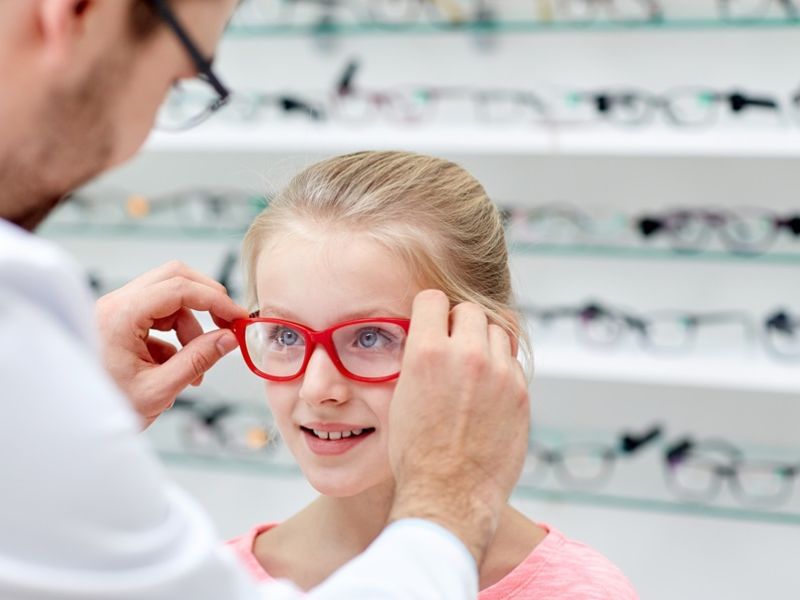When Should You Take Your Child for Their First Eye Exam?
Jun 28, 2015 in Eye Tests

Vision impairment and sight loss in children is a worrying trend these days. In England, 2 in every 1000 children and young people (up to the age of 25) have some sort of vision impairment. In nearly 2/3rd cases childhood vision impairment is present from birth or is diagnosed in the first year.
As children grow older and are increasingly getting exposed to digital media from a young age, problems in vision are on the rise. Many of the vision problems can be corrected or at least contained if they are diagnosed early. This calls for regular eye tests for children from an early age. We help you plan your child’s eye examinations over the years.
Eye Tests
When your child is born, your paediatrician will usually check their vision in the hospital ward. Regular vision screening is a part of routine developmental checks that your child will undergo. While these checks are helpful, they are not as thorough as a full eye examination by a qualified optometrist. An eye test at a young age is especially imperative for children who are born premature or have a family history of eye problems. Your optometrist will check whether your child’s eyes focus correctly, that they are not misaligned and there is no internal eye disease. Other tests include a light reaction test as well as an eye movement check. Your child should have an eye examination around the age of 3 years and then just before starting school. If there is no vision impairment, regular eye tests can be done every two years. If your child has some vision problems, an annual eye examination is recommended.
What You Can Do
Here are some things to keep in mind while going for baby’s first eye test:
- Remember that the eye test won’t hurt your child, so relax! Your anxiety may rub off on your child.
- Inform the optometrist if there is a family history of eye problems, if your baby was born premature or if you have noticed any discrepancies in your child’s eyes. These could include:
- Frequent eye rubbing or blinking
- Failure to maintain eye contact
- Poor eye tracking skills
- Excessive tearing
- Red or encrusted eyes
- Extreme sensitivity to light
- When scheduling the eye appointment, choose a time when your child is usually alert and happy
Take the Test
As your child grows older, make sure that an eye test is a part of their routine health checks. At Leightons Opticians and Hearing Care, we make it our mission to provide you and your child with a relaxing and professional atmosphere. Our friendly and trained staff will put you at ease and guide you through the eye examination.
We also carry out a complete lifestyle assessment along with the eye test. Based on the results of the eye tests, we will advise the best course of action for your child, especially if any vision impairment is detected. Choose from a wide range of specialist services, glasses, sunglasses and contact lenses.
So drop in at one of our branches or book an eye test online with Leightons Opticians and Hearing Care. As they say, prevention is better than cure!

